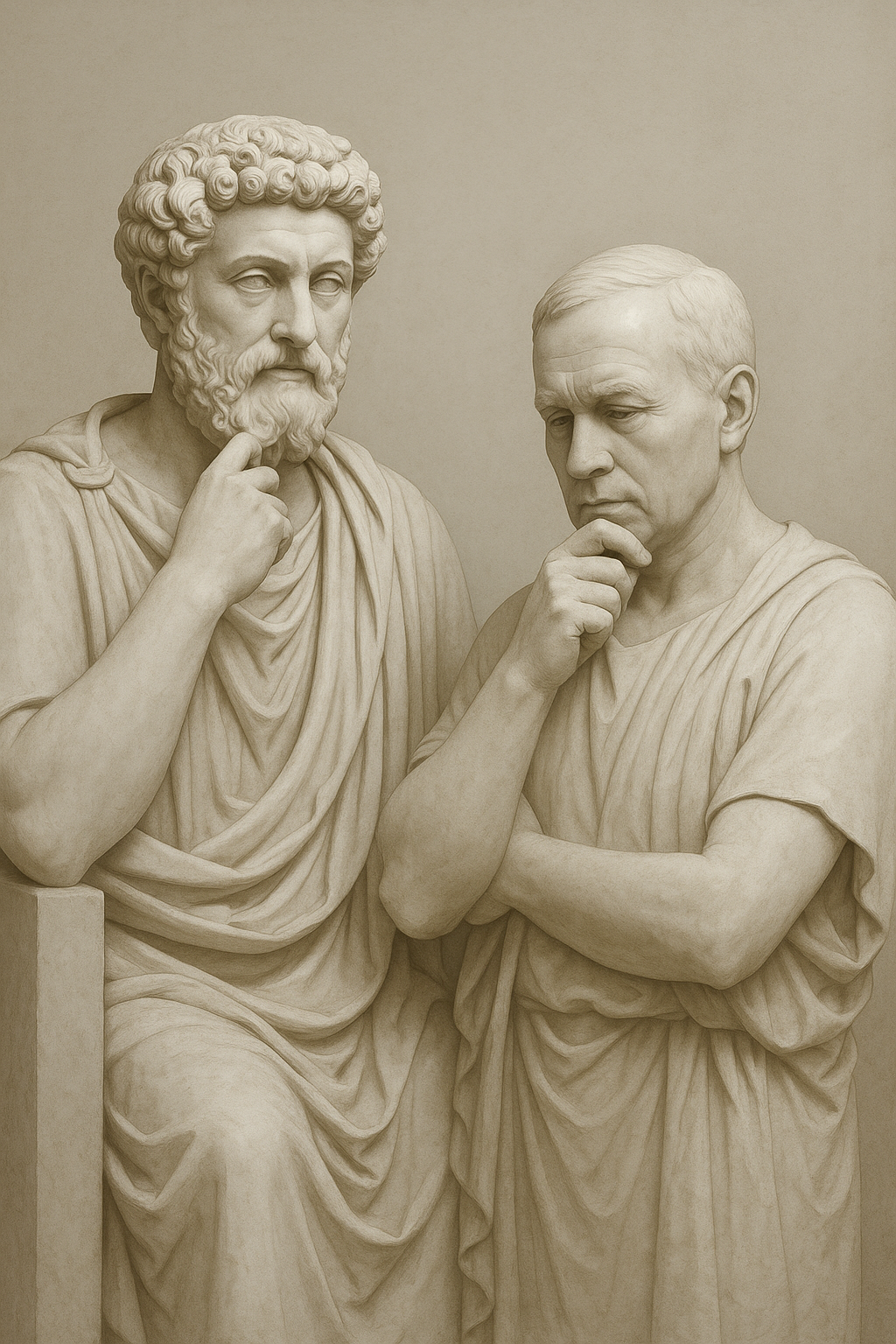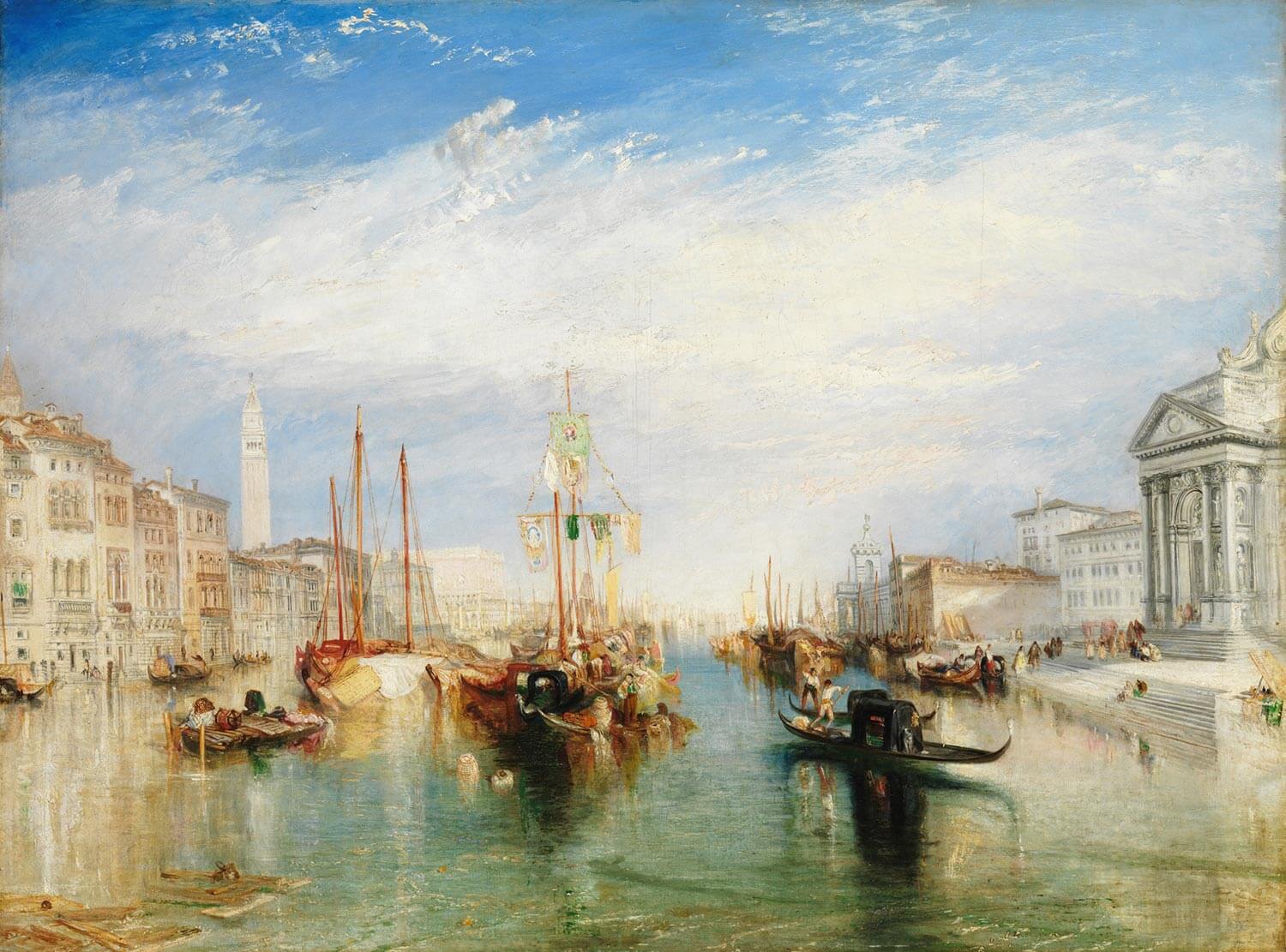status
date
slug
comment
summary
tags
category
icon
password
网址
type

哲学对话封面图:古希腊哲学家与中年人的人生思辨
当人生走到中年,我们常常感到困惑:事业有了起色却找不到更深层的意义,家庭责任重大却感觉与家人渐行渐远,社会地位提升了却内心空虚。这些困惑在2400年前就被古希腊哲学家亚里士多德深刻地洞察和思考过。他的实践智慧理论,为现代中年人提供了一套完整的人生指导体系。
When life reaches middle age, we often feel confused: our careers have improved but we can't find deeper meaning, family responsibilities are heavy but we feel distant from family members, social status has risen but our hearts feel empty. These confusions were deeply perceived and contemplated by ancient Greek philosopher Aristotle 2,400 years ago. His theory of practical wisdom provides modern middle-aged people with a complete life guidance system.
亚里士多德的中年视角 / Aristotle's Middle-aged Perspective
亚里士多德本人也经历了典型的中年转折。在49岁时,他的学生亚历山大大帝去世,政治环境发生剧变,他被迫离开雅典。这种中年变故让他对人生有了更深刻的理解,也使他的哲学更加贴近现实生活的复杂性。
Aristotle himself experienced a typical middle-age transition. At 49, his student Alexander the Great died, the political environment changed dramatically, and he was forced to leave Athens. This middle-age upheaval gave him deeper understanding of life and made his philosophy more relevant to the complexity of real life.
他提出的practical wisdom /ˈpræktɪkəl ˈwɪzdəm/ (实践智慧) 概念,正是为了帮助人们在具体的生活情境中做出正确的道德和人生选择。这种智慧不是抽象的理论,而是可以在日常生活中应用的指导原则。
His concept of practical wisdom was precisely designed to help people make correct moral and life choices in specific life situations. This wisdom is not abstract theory, but guiding principles that can be applied in daily life.
中年危机的哲学解构 / Philosophical Deconstruction of Midlife Crisis
1. 重新定义成功:从外在成就到内在德性 / Redefining Success: From External Achievement to Internal Virtue
现代中年人的痛苦往往源于对成功的错误定义。亚里士多德认为,真正的幸福(eudaimonia)不在于财富、地位或名声,而在于virtue /ˈvɜːrtʃuː/ (德性) 的实践和人格的完善。
The pain of modern middle-aged people often stems from incorrect definitions of success. Aristotle believed that true happiness (eudaimonia) lies not in wealth, status, or fame, but in the practice of virtue and character perfection.
实际应用场景 / Practical Application Scenarios:
当你在职场遇到升迁瓶颈时,不要仅仅关注职位高低,而要思考:
- 我在这个岗位上如何体现了智慧、勇气、节制、正义等德性?
- 我的工作是否让我成为了更好的人?
- 我是否在帮助他人成长和发展?
When encountering promotion bottlenecks at work, don't just focus on position levels, but consider:
- How have I demonstrated wisdom, courage, temperance, and justice in this position?
- Has my work made me a better person?
- Am I helping others grow and develop?
2. 中庸之道:中年人的平衡艺术 / The Golden Mean: The Art of Balance for Middle-aged People
亚里士多德的"中庸之道"不是简单的折中,而是在具体情境中找到最恰当的行为方式。这对面临多重压力的中年人尤其重要。
Aristotle's "golden mean" is not simple compromise, but finding the most appropriate behavior in specific situations. This is especially important for middle-aged people facing multiple pressures.
<pre><code> 中年人常见困境的中庸解决方案 / Golden Mean Solutions for Common Middle-age Dilemmas: 工作与家庭平衡 / Work-Life Balance: - 过度:工作狂,忽视家庭 (Excess: Workaholic, neglecting family) - 不足:缺乏职业追求,依赖他人 (Deficiency: Lack career pursuit, depend on others) - 中庸:在承担责任的同时保持个人发展 (Mean: Personal development while fulfilling responsibilities) 子女教育方式 / Child Education: - 过度:控制欲强,过度保护 (Excess: Strong control, overprotection) - 不足:放任不管,缺乏指导 (Deficiency: Laissez-faire, lack guidance) - 中庸:给予支持的同时培养独立性 (Mean: Support while fostering independence) 财务管理态度 / Financial Management: - 过度:过分节俭,影响生活质量 (Excess: Excessive frugality affecting quality of life) - 不足:挥霍无度,缺乏规划 (Deficiency: Extravagance, lack planning) - 中庸:合理消费,平衡现在与未来 (Mean: Reasonable consumption, balance present and future) </code></pre>
实践智慧在职场中的应用 / Application of Practical Wisdom in the Workplace
1. 决策智慧:超越技术性思维 / Decision Wisdom: Beyond Technical Thinking
中年人在职场的优势不在于体力或者技术的先进性,而在于judgment /ˈdʒʌdʒmənt/ (判断力) 和综合分析能力。亚里士多德强调,实践智慧需要结合普遍原则和具体情境。
The advantage of middle-aged people in the workplace lies not in physical strength or technical advancement, but in judgment and comprehensive analytical ability. Aristotle emphasized that practical wisdom requires combining universal principles with specific situations.
具体操作方法 / Specific Operation Methods:
面对重要决策时,运用亚里士多德的"四因说"分析框架:
- 质料因 (Material Cause): 现有的资源和条件是什么?
- 形式因 (Formal Cause): 我们想要达到的目标是什么?
- 动力因 (Efficient Cause): 推动变化的力量是什么?
- 目的因 (Final Cause): 这个决策的最终目的是什么?
When facing important decisions, use Aristotle's "Four Causes" analytical framework:
- Material Cause: What are the existing resources and conditions?
- Formal Cause: What goal do we want to achieve?
- Efficient Cause: What is the driving force for change?
- Final Cause: What is the ultimate purpose of this decision?
2. 领导智慧:从管理到引导 / Leadership Wisdom: From Management to Guidance
亚里士多德认为,真正的领导者不是通过权力控制他人,而是通过moral example /ˈmɔːrəl ɪɡˈzæmpəl/ (道德榜样) 来影响他人。这种观点对中年管理者尤其有指导意义。
Aristotle believed that true leaders do not control others through power, but influence others through moral example. This view is particularly instructive for middle-aged managers.
实践策略 / Practical Strategies:
- 以身作则 (Lead by Example): 先要求自己做到,再要求别人
- 因材施教 (Teach According to Aptitude): 根据不同下属的特点给予不同的指导
- 长远视角 (Long-term Perspective): 不只看短期业绩,更关注人的成长
人际关系的德性实践 / Virtue Practice in Interpersonal Relationships
1. 友谊的三个层次:中年人的社交智慧 / Three Levels of Friendship: Social Wisdom for Middle-aged People
亚里士多德将友谊分为三种类型,这个分类体系能够帮助中年人更好地理解和经营人际关系。
Aristotle classified friendship into three types. This classification system can help middle-aged people better understand and manage interpersonal relationships.
功利友谊 (Friendships of Utility):
- 特点:基于相互的利益交换 (Characteristics: Based on mutual benefit exchange)
- 中年应用:职场合作关系、商业伙伴关系 (Middle-age application: Workplace cooperation, business partnerships)
- 管理原则:保持reciprocity /ˌresɪˈprɑːsəti/ (互惠性) 和透明度
快乐友谊 (Friendships of Pleasure):
- 特点:基于共同的兴趣和愉快体验 (Characteristics: Based on common interests and pleasant experiences)
- 中年应用:兴趣小组、运动伙伴、同学聚会 (Middle-age application: Interest groups, sports partners, alumni gatherings)
- 管理原则:保持轻松感,不要过度功利化
美德友谊 (Friendships of Virtue):
- 特点:基于相互的品格认同和精神追求 (Characteristics: Based on mutual character recognition and spiritual pursuit)
- 中年应用:人生导师、心灵知己、价值观相同的朋友 (Middle-age application: Life mentors, confidants, friends with same values)
- 管理原则:珍惜和培养,这是最高层次的友谊
面对人生有限性的智慧 / Wisdom in Facing Life's Finitude
中年人开始真切地感受到时间的有限性,这种感受往往带来焦虑和恐惧。亚里士多德的思想为我们提供了面对这种finitude /ˈfaɪnaɪˌtuːd/ (有限性) 的智慧。
Middle-aged people begin to truly feel the limitation of time, and this feeling often brings anxiety and fear. Aristotle's thoughts provide us with wisdom to face this finitude.
1. 追求卓越而非完美 / Pursue Excellence Rather Than Perfection
亚里士多德强调"卓越"(excellence)而非"完美"(perfection)。对中年人而言,这意味着:
- 接受自己的局限性,不要因为无法做到完美而自责
- 在有限的时间里,专注于做好最重要的事情
- 将经验传承给下一代,实现生命的延续
Aristotle emphasized "excellence" rather than "perfection." For middle-aged people, this means:
- Accept your limitations, don't blame yourself for not being perfect
- In limited time, focus on doing the most important things well
- Pass experience to the next generation, achieving life's continuation
2. 建立人生的优先级序列 / Establish Life Priority Sequence
<pre><code> 亚里士多德式的人生优先级排序 / Aristotelian Life Priority Ranking: 第一优先级:德性发展 (First Priority: Virtue Development) - 智慧、勇气、节制、正义的实践 - Practice of wisdom, courage, temperance, justice 第二优先级:重要关系维护 (Second Priority: Important Relationship Maintenance) - 家庭关系、深度友谊的经营 - Family relationships, deep friendship cultivation 第三优先级:社会贡献 (Third Priority: Social Contribution) - 工作成就、社区参与、知识传承 - Work achievements, community participation, knowledge inheritance 第四优先级:个人享受 (Fourth Priority: Personal Enjoyment) - 适度的休闲、娱乐和物质享受 - Moderate leisure, entertainment, and material enjoyment </code></pre>
日常生活中的哲学实践 / Philosophical Practice in Daily Life
1. 反思性习惯的建立 / Establishing Reflective Habits
亚里士多德认为,智慧来自于对经验的反思。中年人可以通过建立以下reflective practices /rɪˈflektɪv ˈpræktɪsɪz/ (反思性实践) 来培养实践智慧:
Aristotle believed that wisdom comes from reflection on experience. Middle-aged people can cultivate practical wisdom by establishing the following reflective practices:
晨间思考 (Morning Reflection):
每天早晨问自己三个问题:
- 今天我如何能体现德性? (How can I embody virtue today?)
- 今天最重要的是什么? (What is most important today?)
- 我如何平衡各种责任和需求? (How do I balance various responsibilities and needs?)
晚间回顾 (Evening Review):
每天结束前反思:
- 今天我的行为是否符合德性标准? (Did my actions today meet virtue standards?)
- 我在哪些方面可以改进? (In what areas can I improve?)
- 我从今天的经验中学到了什么? (What did I learn from today's experiences?)
中年转型的哲学指导 / Philosophical Guidance for Midlife Transition
1. 从第一山到第二山 / From First Mountain to Second Mountain
借用现代学者的比喻,人生的"第一座山"通常是关于个人成就——事业成功、财富积累、社会地位。而"第二座山"则关于意义和贡献——如何让世界变得更好,如何帮助他人成长。
Borrowing a metaphor from modern scholars, life's "first mountain" is usually about personal achievement—career success, wealth accumulation, social status. The "second mountain" is about meaning and contribution—how to make the world better, how to help others grow.
亚里士多德的实践智慧理论为这种转型提供了哲学基础:
- 从个人利益到共同善 (From Personal Interest to Common Good): 考虑行为对整个社区的影响
- 从外在成功到内在完善 (From External Success to Internal Perfection): 重视品格培养超过成就积累
- 从竞争到合作 (From Competition to Cooperation): 通过帮助他人实现自我价值
Aristotle's practical wisdom theory provides philosophical foundation for this transition:
- From Personal Interest to Common Good: Consider the impact of actions on the entire community
- From External Success to Internal Perfection: Value character cultivation over achievement accumulation
- From Competition to Cooperation: Realize self-worth by helping others
应对中年压力的智慧策略 / Wisdom Strategies for Coping with Midlife Stress
当代中年人面临的压力往往是多维度的:职场竞争、家庭责任、健康焦虑、财务压力等。亚里士多德的智慧为我们提供了holistic /hoʊˈlɪstɪk/ (整体性) 的应对策略。
Contemporary middle-aged people face multi-dimensional pressures: workplace competition, family responsibilities, health anxiety, financial stress, etc. Aristotle's wisdom provides us with holistic coping strategies.
压力的哲学重构 / Philosophical Reconstruction of Stress:
不要将压力视为纯粹的负面体验,而要将其理解为成长和实践德性的机会。每一次压力都是检验我们智慧、勇气、节制和正义的试金石。
Don't view stress as purely negative experience, but understand it as opportunities for growth and virtue practice. Every stress is a touchstone testing our wisdom, courage, temperance, and justice.
亚里士多德告诉我们,中年不是人生的衰落期,而是智慧的收获期。通过实践德性、培养友谊、追求卓越,我们可以在这个人生阶段找到深层的满足和意义。真正的幸福不在于拥有什么,而在于成为什么样的人。
Aristotle tells us that middle age is not a period of life's decline, but a harvest period of wisdom. Through practicing virtue, cultivating friendship, and pursuing excellence, we can find deep satisfaction and meaning in this life stage. True happiness lies not in what we have, but in what kind of person we become.
FAQ / 常见问题
亚里士多德的实践智慧如何帮助中年人做职业选择?
亚里士多德的实践智慧强调在具体情境中找到最恰当的行为方式。在做职业选择时,不要只考虑薪资或地位,而要综合考虑:这份工作是否能让你实践德性(智慧、勇气、节制、正义)?是否符合你的人生价值观?是否能为社会做出贡献?是否能平衡你的各种生活需求?通过这种多维度思考,你会发现最适合的不一定是表面上最光鲜的选择。
中庸之道在处理家庭关系中如何具体应用?
在家庭关系中,中庸之道的核心是避免极端,找到动态平衡。比如对待青春期子女:既不能过度控制(极端),也不能完全放手(另一个极端),而要在给予指导的同时尊重他们的独立性。对待父母:既要尽孝道,也要保持自己家庭的独立性。对待配偶:既要保持亲密,也要给彼此足够的个人空间。关键是根据具体情况灵活调整,而不是机械地执行某种固定模式。
如何在现实的利益考量和德性要求之间找到平衡?
亚里士多德并不要求我们完全脱离现实利益,而是要求我们在追求利益时不违背基本的德性原则。具体做法是:首先明确你的道德底线,哪些事情绝对不能做;其次在可接受的选择中,优先选择既能满足现实需求又能体现德性的方案;最后要有长远眼光,短期的德性行为往往带来长期的实际利益,比如诚信经营虽然短期内可能损失一些机会,但长期会建立良好声誉。
中年人如何培养亚里士多德所说的"实践智慧"?
培养实践智慧需要三个步骤:首先是学习,了解基本的道德原则和人生智慧;其次是实践,在日常生活中有意识地运用这些原则;最后是反思,定期回顾自己的行为和决策,总结经验教训。具体方法包括:建立每日反思的习惯,记录重要决策的过程和结果;寻找智慧的导师或朋友,定期交流人生感悟;阅读经典著作,从前人的智慧中汲取营养;参与社区活动,在服务他人中实践德性。
面对中年危机时,亚里士多德的哲学能提供什么具体帮助?
亚里士多德的哲学为中年危机提供了三个层面的帮助:认知层面,重新定义成功和幸福,不再只看外在成就,而要关注内在德性的发展;情感层面,通过培养深度友谊获得支持,通过实践德性获得内心平静;行动层面,制定符合德性要求的人生规划,在具体行动中寻找意义。最重要的是,亚里士多德告诉我们中年危机是正常的人生阶段,是从追求个人成就转向追求更大意义的转折点,不要视为失败,而要视为成长机会。
亚里士多德的友谊理论如何指导中年人的社交生活?
亚里士多德的三种友谊理论为中年人提供了清晰的社交指导:首先要认识到不同类型友谊的价值和局限,功利友谊虽然现实但不要期待过深的情感连接;快乐友谊能带来轻松愉快,但要接受其可能的变化性;美德友谊最珍贵但也最稀少,要用心培养和维护。在社交策略上,要有意识地在三种友谊间保持平衡,既要有实用的职场关系,也要有轻松的兴趣伙伴,更要有深度的心灵知己。随着年龄增长,要逐渐向高质量的美德友谊倾斜,减少无意义的社交消耗。
关键词 / Keywords:
亚里士多德哲学, 中年人实践智慧, 中庸之道, 德性伦理学, 中年危机哲学指导, 人生意义思考, 职场智慧, Aristotle philosophy, middle-aged practical wisdom, golden mean, virtue ethics, midlife crisis guidance
<ins/>
转载本文或本站任何文章和资源请保留原文链接谢谢!
本站制作和创作会用到部分互联网资源,如果侵犯了您的合法权益,请参照关于页面联系本站我们会及时删除。
本站文章和一切内容仅供研究、学习交流之用,若使用商业用途,请联系站长授权。
欢迎您在底部评论区留言,一起交流~
<ins/>
- Author:FM
- URL:https://www.futuremedia.work/learning/Aristotle's-Practical-Wisdom-Guidance
- Copyright:All articles in this blog, except for special statements, adopt BY-NC-SA agreement. Please indicate the source!
Relate Posts







